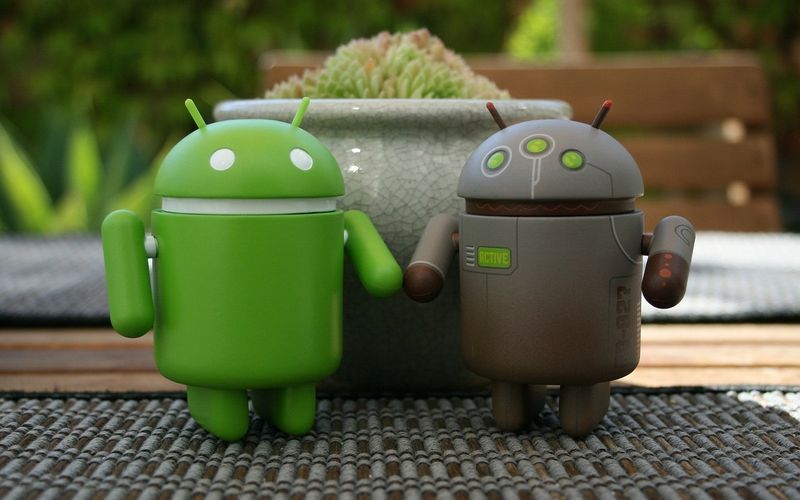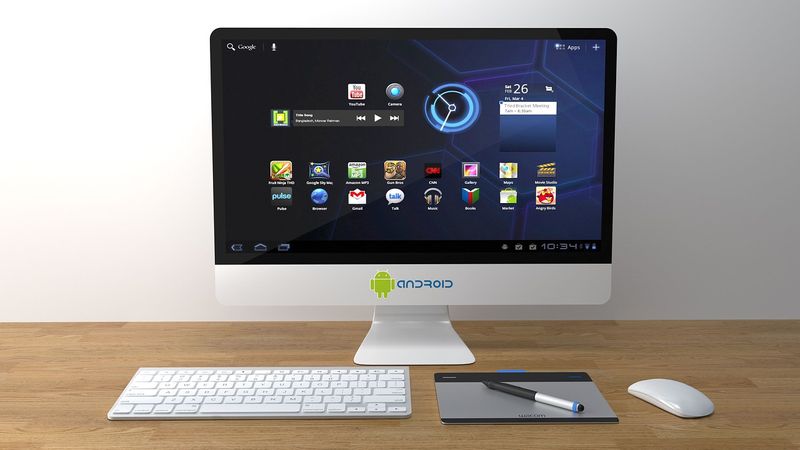Advantages and Disadvantages of Rooting Your Android Device Risk
Rooting android is one of the biggest selling points about android. It is super flexible and malleable it can easily be managed. Custom roms can be installed even without rooting your device. A kernel is a portion of the android operating system that helps rooting android helps you to unlock the full potential of your smartphone. You can only back up a few of the stuff, like your a rooted android device can be tweaked to an important extent, which is why it is so popular in the first place. An incorrect setting or moving the wrong item into the wrong place and the wrong time can cause huge problems that can even become irreversible. If you choose to root, root with caution. Some pros and cons are quite similar to each other. It gives you enormous control. …
Rooting Android is one of the biggest unique selling points about Android is the fact that it is super flexible and malleable it can easily be managed.
However a big question is to root or not to root.
As it also comes with a lot of risk with rooting.
In this article, I will tell you why you should root your android device & Why should you not 🙂
While Apple’s iOS is workable right off the packaging, it is very close to the Android operating system, which is why Google’s popular operating system has been such a hit among developers.
To understand Android and to discover more on this topic, just you have to read the article vividly.
What Does Rooting Android Even Mean?
Before we get into the Brightside and the darker side of rooting Android devices, let us look at what rooting android consists of.
In the simplest terms, rooting means getting root access or administrative privileges for your corresponding android supportive devices.
You may have paid for your Android device, but it is worth noting that no matter how much or how little you pay, the internals features of your android device are still hidden away from you.
Think of it as operating on a desktop computer through a user account though it is your desktop. If you can to take most of the advantages of most of the features of the phone, you need to have administrative rights without which it is just next to impossible.
With great power, however, comes great obligation.
You have additional things in your grip, and some of the safety and fortification that you take for approved on your unrooted device will not work on a rooted one.
Still, you do get to have complete control over your device.
You can browse the Android root file and make changes to the system files, which means altering, installing or removing some of the key essentials of your phone.
The Advantages of Rooting Android
#1 – Installation of custom ROMs
You can install a conventional ROM or Kernel after you root your device, which essentially means you get a new device version, which is software-wise. In fact, this is frequently the major reason for people to root their devices.
Custom ROMs offer several performance fixes and tweaks to your system and are stereotypically more comprehensible than stock ones.
They can be optimized for battery, device performance, and updates more frequently than stock ROMS do.
A kernel is a portion of the Android operating system that helps apps and others control hardware features of the device. Several goodies accompany a custom kernel for a rooted Android device.
For one, you can add features previously not available and improve the battery life, performance and stability of your device.
What is a ROM?
A ROM is fundamentally a modified Android version that can be installed once again with some advanced features and several other benefits. Custom ROMs can be installed even without rooting your device, but it is much better to use one on a rooted device than an un-rooted one.
They can suggestively alter the look and feel of your device. The greatest stuff about them is that they also come as stock Android, which gives you the basic Android installed typically in most devices.

This can come astonishingly in handy when you want to un-root your device.
#2 – Removing pre-installed OEM apps
Android smartphone comes with a cluster of apps directly from the company.
Some of them are good, but most of them are just useless, worthless and you cannot even remove them.
Once you root your device, however, all those apps can go away and you can get the most out of your machine.
#3 – Ad-blocking for all apps
Ad blocking is simple on a web browser, but it gets noticeably more complex on a smartphone or device. Pop-ups are considered to be very disgusting and irritating which becomes a regular problem in most games and apps, but rooting takes care of it all immediately.
#4 – Installing incompatible apps
Some of the best apps right now may not be companionable with your phone or device.
However, rooting your Android device gives you access to all the apps you can find. You even get the latest Android updates before your phone maker releases it on their own, plus some additional features.
You can run distinct applications that require root access, which is generally more authorized and feature-rich than other apps. These applications can directly deal with Android system files, modifying your Android operating system more widely than other surface-level apps can.
For instance, you could silently uninstall several applications after you download e-uninstall with root access.
#5 – More display options and internal storage
Most devices come with four to five default skins to pick from, but rooting android phones.

However, for that, you need to first install new ROMs to fully modify and tweak your device skins for a truly exclusive display. Another great advantage is that rooting android frees up your device’s interior storage.
People with low internal storage space can relocate whatever application they want to the SD card after they root their device. Some applications get transferred automatically, but an un-rooted device typically blocks you from doing this for all devices. Once your device is rooted, you can force move an app with a symlink.
#6 – Greater battery life and speed
While most of the above benefits are largely superficial or convenience-based, this one is a more applied benefit. Rooting Android helps you to unlock the full potential of your smartphone. You can use apps like Greenify to close useless applications spontaneously, efficiently improving your device performance.
However, it does need root access to do that.
#7 – Making full device backups
When you have an unrooted Android smartphone, you can only back up a few of the stuff, like your apps or some handle full of settings. Once you root your device, you will get to find plenty of apps like Titanium that will entirely back up your rooted device.
#8 – Access to root files
When you are rooting your Android device, you have entrance to a number of files, segments, and parts of your device that would otherwise not be available. This is what gives you so much entrance and choice to do what you want with your device. You can use prevailing apps or, with a little knowledge, tweak the files and portions of your device yourself.
#9 – CPU Clocking
Un-rooted devices characteristically do not have CPU clocking abilities, which supports you, to increase and/or reduction the CPU or processor speed of your device. Increasing processor clock speed aids you in abstract maximum performance while lowering it helps spread battery life.
No Add-ons CPU Control is one such device that does this with this ease, and it is free from Google Play.
You can find other such apps that rapidly lets you take control of your CPU performance without worrying about the mechanical terms or setting, and while safeguarding that the device is working within safe limits.
#10 – More tweaking
With a rooted Android device, you can organize and enhance your device for a personalized feel and for better performance. Android can be tweaked to an important extent, which is why it is so popular in the first place. Depending on what you want with your device, you can make numerous changes.
The Disadvantages of Rooting Android
#1 – It can brick your device
One of the most common intimidations to a rooted Android device is disoperation, which could turn your device into a luxurious, unfeasible block.
To evade this, you should always get your apps from dependable causes, like Google Play, and do not remove files that rooting apps advice not to erase. The danger of conclusion up bricking your phone is even bigger if you are new to rooting.
You can find some detailed lectures on the internet to root your device, but it can still be a scary task.

If you anyhow by mistake flash a corrupt zip file or miss any step, you will likely end up with a bricked device which will be of no use anymore.
If this happens, you need to go to your manufacturer’s service center or, if you are a power user, fix it yourself.
If you opt for the first option, you will face the second big disadvantage of rooting an Android device i.e., bricking is a feared tenure in the rooting world. Although there are various ways to fix it, it can be surprisingly easy to block a device.
#2 – No more warranty
Another big difficulty of rooting an Android smartphone is the point that you lose your device warranty.
Device creators will not cover the damage caused after you root the device or if you realize that the phone got bricked while you rooted it.
In some devices, you can still un-root the device after rooting so that device creators do not know whether you rooted it or not. On the other hand, device makers can go to great extents to find out the truth about your device.
#3 – Root and super user access
Having root entrance sounds amazing and it is too, right up until things go erroneous. An incorrect setting or moving the wrong item into the wrong place and the wrong time can cause huge problems that can even become irreversible.
Correspondingly, CPU clocking can also turn out to be a drawback. Overclocking or accumulative processor speed can maximize performance but also comes with the risk of overheating your processor, which is the heart of your device.
#4 – Tweaking risks
There are also risks that come with modifying your device.
What will happen when you regulate certain settings?
The worst-case situation is that you will brick the device, but another likely condition is that nothing will happen, which is exasperating too!
There is also the danger of receiving the wrong kernel or ROM, which comes with its own problems. Your device could end up bricked or worse. Fixing these catastrophes can also cost a lot of time, money, and effort.
#5 – Ad-blocking
Ad blocking is listed as an advantage, so how can it be a hindrance to rooting?
Well, the truth is that those ads generate revenue for developers, which is used for further development of the app and give you i.e. the customer more features.
If too many people root their device and block these ads, it translates to revenue lost, causing a big problem for developers and you in the long run. Apart from that, changing or editing, the app manually for blocking ads could turn the app unusable.
#6 – Update problems
A good thing about unrooted Android devices or smartphones is the system update, no matter how late it comes, will definitely install and work perfectly. The danger with rooted devices is that this may not occur.
You may find that automatic firmware updates may not be working. In some cases, updates will not mount because of software alterations made during the rooting process itself.
CONCLUSION
It all depends on how much risk you are willing to take, the kind of usage you have with your phone, and what your expectations are.
If you choose to root, root with caution.
Some pros and cons are quite similar to each other. That is, in fact, the greatest advantage and disadvantage of Android itself.
It gives you enormous control, but you also have to be cautious with that power. Your decision should be on your answers to these questions:
Are you eager to risk facing and trying to fix the difficulties of rooting your device?
Have you made a holdup for your device before you attempted to root your devices?
Have you done sufficient investigation online to find out how to root your precise device?
If your response to these three questions is a ‘yes’, then you should be ready to handle rooting your Android device and fronting the significances and profits. If your answer is ‘no’ to two or all three questions, then you should probably think a few more times before you take the leap to the conclusion of rooting your device.

Hello! My name is Lucas, and I am the creator of ursuperb.com. I’ve been writing about technology for almost 10 years now, and I love talking about tech news, reviews, and tutorials. I’m currently living in San Francisco, CA, and I’ve been blogging professionally since 2012. I love what I do, and I really enjoy interacting with people online. I believe in creating positive change for humanity, and I try to inspire others to do the same. You can read more about me here.
My favorite thing about Ursuperb is that I’m able to provide useful information to anyone interested in learning more about technology. No matter what kind of tech you use (computer, smartphone, tablet), you will definitely find something interesting to read on Ursuperb. So, let’s take a look at some of the topics I cover on Ursuperb:
1) How To Build An Online Business With WordPress
2) How To Make Money On YouTube Using AdSense
3) What Is Google Analytics? And Why Should You Use It?
4) How To Make Your Own Website Design Software For Free




